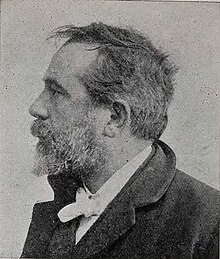| Gaetano Esposito | |
|---|---|
 | |
| Born | 17 November 1858 |
| Died | 8 April 1911 |


Gaetano Esposito (November 17, 1858 – April 8, 1911) was an Italian painter.
Biography
He was born in Salerno. He first studied under Gaetano D'Agostino, but later enrolled at the Royal Institute of Fine Arts of Naples, where he studied under Filippo Palizzi, Domenico Morelli and Stanislao Lista. In these studies, he was funded by a stipend from the government of Salerno. He was influenced by Antonio Mancini, a lifelong supporter, especially in his genre depictions of the activities of the lower classes of Naples. He also painted portraits.
Gaetano, like other Neapolitan painters such as Morelli, rebelled from an academic temperament. He was described as Irascible, diffident, and prone the jealousy, he was not one to gain friends among his colleague painters, with the exception of Antonio Mancini... and this lack of affability forced him to have to sell briskly to be able to sustain himself. He did get commissions in the last decade of the 19th century to decorate the Caffè Gambrinus in Naples, the ceiling (1895) of the Garibaldi Communal theater at Santa Maria Capua Vetere, and the ceiling (1897–1898) of the refurbished Palazzo della Borsa in Naples where he painted allegories of work and history.
He began to concentrate on painting marine vedute, similar to those that had been traditional for the School of Posillipo. For example, he painted the scenic Palazzo Donn'Anna a number of times. At the 1904 Universal Exposition at Saint Louis, he won a gold medal for a large seascape canvas.
His painting of Christ among the children was displayed at the 1880 Turin exposition. At the 1877 National Exhibition, he displayed Un triste presentimento, Una figlia della colpa una cucina tutta fumo. In 1883 at Rome he displayed Da Posillipo. In 1884 in Turin he exhibited Brillo, Tipo napoletano, Primi palpiti, Aspetti, and Colloquio piacevole.
In 1910 a young female pupil, Venturina Castrignani, committed suicide after being romantically rejected by Gaetano. Tormented by guilt, Esposito himself committed suicide on April 7, 1911, in Sala Consilina in Salerno.
References
- Grove Encyclopedia of Art
- Treccani encyclopedia Entry, by Luciana Soravia, Dizionario Biografico degli Italiani - Volume 43 (1993).
- Grove Encyclopedia of Art
- Treccani encyclopedia entry.
- Including a version of the Palazzo Donn'Anna now at the Galleria Nazionale d'Arte Moderna, Rome.
- Dizionario degli Artisti Italiani Viventi: pittori, scultori, e Architetti., by Angelo de Gubernatis. Tipe dei Successori Le Monnier, 1889, page 187.
- The International Studio, part 1, page 81.
External links
 Media related to Gaetano Esposito at Wikimedia Commons
Media related to Gaetano Esposito at Wikimedia Commons
- 1858 births
- 1911 deaths
- People from Salerno
- Painters from Campania
- 19th-century Italian painters
- Italian male painters
- 20th-century Italian painters
- Painters from Naples
- Italian genre painters
- Italian landscape painters
- Accademia di Belle Arti di Napoli alumni
- 1911 suicides
- Suicides in Italy
- 19th-century Italian male artists
- 20th-century Italian male artists